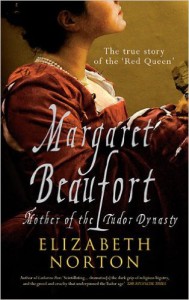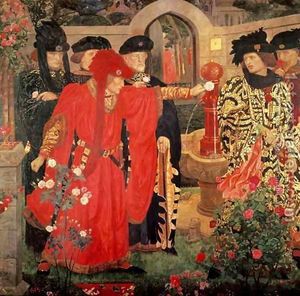Been thinking lately about good King Henry. No not that one. Nor that one. Not even that one.
I speak not of Henry VIII, who transformed England perhaps more than any other ruler. Nor do I dwell on his father, who founded the infamous Tudor dynasty. I do not even mean the fifth Harry, who took England to its 100 year war zenith at the battle of Agincourt.
Instead, I’ve been pondering the reign of Henry VI – the man whose reign was seen as so disastrous that it led to the Wars of the Roses and ultimately, the downfall of Lancaster and the rise of York. He was weak. Easily led. He had no desire for glory in war. He lacked ruthlessness. He was far too trusting; particularly when it came to unscrupulous advisers.
All this is accurate. He had none of the qualities necessary for successful medieval Kingship.
But something bothers me about how history judges him. No sympathy has emerged and few rarely speak up for his good qualities. He was a man of genuine religious conviction. He was compassionate. He invested in education. He forgave people that wronged him. He was not promiscuous. He took care of his maternal half-brothers. He was a lover of peace.
None of this, I agree, would have endeared him to contemporaries. But shouldn’t the 21st century observer be pouring praise on these virtues? After all, the behaviour of Catherine Howard made her a totally unsuitable Tudor Queen; but the modern reader has sympathy with her, recognising that she was essentially an abused teenage girl, forced into marriage with an obese man in his 50s. Why isn’t Henry VI given the same generosity?
It has come to my attention of late that the Wars of the Roses are still being fought – albeit by history fans on Twitter. Great! But it surprises me that so many side with Edward IV at the expense of poor Henry.
Don’t get me wrong – as I’ve said above, I understand why contemporaries would have seen Edward as the better King. But shouldn’t we judge differently? Shouldn’t we be quick to acknowledge that virtuous, faithful, peaceful Henry is a better offering than adulterous, gluttonous and war ready Edward – even if we have to sadly acknowledge that the latter probably makes you a better ruler of 15th century England?
But we don’t. Part of me can’t shake the feeling that this has all been distorted by the fact that so many history fans have a crush on Max Irons…
Anyway, for this blogger at least, Henry VI deserves a reprieve. He may have been one of the most unsuited heads to ever wear a crown – but he’s one of the finest characters in the annals of history.
Okay Yorkists (and other geeks) – do your worst. Tell me where I’m going wrong! I want to hear what you think!



